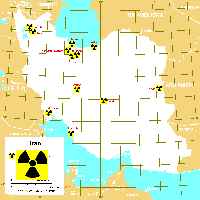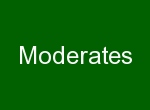Mohamed Sifaoui: “I Consider Islamism to Be Fascism”
Middle East Quarterly
Spring 2008, pp. 13-17
Mohamed Sifaoui was born on July 4, 1967, and spent most of his childhood in Algeria. He holds a master’s degree in political science and studied theology for two years at the University of Algiers and for two additional years at Zeitouna University’s Institute of Theology in Tunis. In 1994, he began work for the Algerian daily Le Soir and survived a February 11, 1996 bomb attack at Le Soir’s headquarters at the Maison de la Presse. In 1999, the French government granted him political asylum after he received death threats both from Algerian Islamists and the military. In Paris, Sifaoui works at the French weekly Marianne. Between October 2002 and January 2003, he infiltrated an Al-Qaeda cell in France in order to research his book, Mes frères assassins: Comment j’ai infiltré une cellule d’Al-Qaïda. (My assassin brothers: How I infiltrated an Al-Qaeda cell).[1]
Sophie Fernandez Debellemanière, a former intern at Le Figaro and The Weekly Standard, interviewed Sifaoui in Paris on September 12, 2007, after meeting him at a 9-11 ceremony on the Champ de Mars.
In Islamism’s Cross Hairs
Middle East Quarterly: Did you flee Algeria because of the terrorist attack on Le Soir?
Mohamed Sifaoui: No. Throughout the 1990s, I was determined to stay. I only left in 1999 when I was sentenced to one year in jail for insulting the head of state. I had criticized President Abdelaziz Bouteflika’s reconciliation policy because I considered it unfair to grant amnesty to a terrorist without even judging him. The Algerian government talked about peace without ever recognizing there was a war. The terrorists suddenly got themselves released with the same rights as the victims’ families. Bouteflika’s behavior towards his people was criminal. They wanted to send me to jail at the same time they were releasing criminals.
MEQ: You stayed longer than most. Were people right to leave Algeria?
Sifaoui: The intellectuals and journalists who left Algeria when the murders started in 1992 were right to do so because the risk was real. Survival instinct is natural and legitimate. It would be indecent to judge them because fear is a legitimate human feeling. In this sense, I was the one being unreasonable by risking my life to stay.
MEQ: Why did you stay in Algeria?
Sifaoui: I didn’t want to leave the country under pressure, because of the possibility of another terrorist attack. Nor do I believe that I was especially brave to stay. It is not a question of being brave or weak. The only thing that matters is the message and the values that you want to transmit. As a journalist, I felt that I had to stay. We never obtained press freedom in Algeria, but I wanted to struggle to get a small part of it. We made some progress, but then, Islamism took us backward. By staying, I wanted to show that I would not accept submission to Islamist censorship and its diktat.
MEQ: Are you still worried? After all, two bodyguards are supervising this interview.
Sifaoui: No, I am not worried. I have built sort of a shell around me. I keep calm, and I do not panic. Honestly, I prefer not to think about it; otherwise, I would worry too much.
MEQ: Are you proud today to have risked your life for your ideas?
Sifaoui: Yes, because I am lucky enough to be alive. It is a shame that those who died did not leave for safety. I stayed because I felt that I was able to accomplish this act of resistance. Each person resists in his or her own way; each does what he or she feels able to. Among the members of the World War II resistance, some hid other resisters; some hid Jewish families or helped them escape to Switzerland, and some failed only to denounce them. For me, at this time, my resistance to fundamentalism is based on a determination not to concede any ground to the Islamists but to keep on writing and to defy danger everyday.
MEQ: What was your reaction to Al-Qaeda deputy leader Ayman al-Zawahiri’s appeal on September 20, 2007, “to wipe sons of France and Spain” out of the Maghreb?[2]
Sifaoui: I’ve been expressing the same warnings about Islamist terrorism for years. Zawahiri’s statement doesn’t surprise me. Since the GSPC [Salafist Group for Preaching and Combat] pledged its allegiance to Al-Qaeda in September 2006, Algerian terrorists and Al-Qaeda leaders expressed their objective very clearly: Intensify terrorist attacks against the Algerian regime and its institutions, as well as against lay and democratic people, targeting Western and especially French citizens.
MEQ: Do you believe that Zawahiri was referring to the descendants of former colonists in Algeria by using the expression “sons of?” Or was this the result of too literal a translation of the Arabic?
Sifaoui: No! This has nothing to do with any literal translation! Zawahiri is referring to all French and Spanish citizens by saying “sons of.” Al-Qaeda’s targets are all the French and Spanish citizens in the Maghreb.
MEQ: Less than twenty-four hours after the release of Zawahiri’s message, a terrorist attack in Lakhdaria in northern Algeria, fifty miles southeast of Algiers, wounded two French citizens, one Italian, and six Algerians.[3] Is this attack a sign that the European presence in the Maghreb is in jeopardy?
Sifaoui: I would not be so pessimistic, but such a quick reaction indicates how organized and coordinated Al-Qaeda and the GSPC are. It also shows the Algerian regime’s incapacity to deal with terrorism.
An Islamist and Fascist Nexus?
MEQ: Would you use the term Islamo-fascism to describe this threat?
Sifaoui: I certainly am one of the first Muslims to consider Islamism to be fascism. This is not a subjective decision but rather a serious, academic argument. Fascism and Islamism are comparable in many aspects: Fascism, without evoking all its particularities, bears similarities to trends also present in Islamism. I am, of course, making a reference to their will to exterminate the Jews. On this point, the Islamists may go even further in their doctrine than the Nazis did, considering that the end of the world could only occur when there are no Jews left on earth. In the three monotheist religions, apocalypse, end of the world, and doomsday exist and are liturgical events invested with a high degree of spirituality. Hence, the Islamists interpret the end of the world in a very special way. Whereas it is written nowhere in the Qur’an, exegetes describe the end of the world as the day when even the trees and rocks will be able to talk and tell the Muslims: “Come here, there is a Jew hiding behind me. Come and kill him.” And this would go on, until there would not be any Jew left on earth. This ideology is pure fascism.
MEQ: Are there other similarities?
Sifaoui: The will to exterminate or do harm to homosexuals is another similarity between Nazism and Islamism. The Islamists, also, say that they are the best community in the world, a superior race thanks to their beliefs. They use political means to arrive at this erroneous exegesis. I do not fear to call it fascism. And there are many more similarities between fascism and Islamism.
Islamism vs. Moderate Islam
MEQ: Do you believe it is possible to criticize Islamism without being called a racist?
Sifaoui: Absolutely, I would say that one must criticize Islamism. When I am criticizing Nazism, I am not being anti-German.
MEQ: When did you feel for the first time that you had to criticize Islamism?
Sifaoui: I have always felt that it was a moral duty.
MEQ: Do you believe that moderate Islam exists?
Sifaoui: Of course, it does. If the majority of Muslims were not moderate, Islamists would have destroyed the Western world a long time ago. Despite its technological lead, its nuclear power, and all its armies, the Western world would never be able to face an Islamist world entirely convinced by the terrorist cause. One billion people supporting Al-Qaeda would reduce the rest of the world to ashes. Islam contains violent texts that need not be applicable today. Islam is a religion of moderation. I know because I studied theology for four years.
Perhaps 20 percent of Muslims on the planet must be totally reeducated. We have to fight them politically, ideologically, and also militarily. Western societies do not fight them well; whenever they try to do so, they end up strengthening them.
One proof that moderate Islam exists is the huge number of sympathy messages that I received from Muslim people when my investigative story on Al-Qaeda Salafist networks, J’ai infiltré une cellule islamiste, was broadcast on French television M6.
Iran
MEQ: Given the Islamists’ vision of apocalypse, do you believe that Iranian president Mahmoud Ahmadinejad would fear reprisal should Iran attack Israel? Should Western analysts rely on Iran’s rationality?
Sifaoui: Too many Western analysts look at any adversary through a Western lens. Western analysts believe that Al-Qaeda is as rational as the Basque separatist group ETA [Euskadi Ta Askatasuna] or the Irish Republican Army. My personal history, culture, and investigative journalism work allow me to understand what Westerners cannot see: Iran will attack Israel as soon as it can.
MEQ: Doesn’t Iran take into account the eventuality of its own destruction?
Sifaoui: No, it does not. Martyrdom is exalted in Iran. Iranians view annihilation positively. The Islamists’ main purpose is to create the conditions for the West to believe that chaos is possible. The argument that says that Iran will not attack Israel because of immediate and massive retaliation from Israel and the United States is absolutely wrong. The Islamists would welcome such retaliation in order to cement coalitions among Muslim peoples and to encourage riots in the Arab street. U.S. military action, or even its prospect, coincides with Islamists’ interests. That is the reason why I was against the war in Iraq.
MEQ: Can you explain?
Sifaoui: Between October 2002 and January 2003, I spent four months infiltrating an Al-Qaeda terrorist cell in France. Two months before the launching of the Iraq war, when I was in the midst of the group, one of the Islamists said, “Now we are going to pray for George Bush to attack Iraq.” I was surprised and acted as if I were stupid: “Really? Why do you want America to kill our brothers?” The most clever and elevated in Al-Qaeda’s hierarchy, Amara Saïfi [the GSPC's emir in London] whispered to me, “All over the world, our brothers are now praying for George Bush to attack Iraq. War between the Muslim world and the Western world is bound to happen. Unfortunately, Muslims are too divided. Far too many of them do not pray regularly and neglect religion and jihad. In order to unify and mobilize all these people, we have to continue what we initiated on 9-11. We attacked America to make her retort everywhere in the Muslim world, in order to create a real war between Muslims and the West, and especially Israel.”
MEQ: That’s incredible.
Sifaoui: Another of the group added, “Once Iraq is at war, many of our brothers will go there to fight jihad. George Bush will have answered our prayers by suppressing our enemy Saddam Hussein and unifying the Muslims in jihad. Then as Westerners do not know how to fight attrition wars, we know that they will inevitably get stuck. We will wait until they leave in order to establish an Islamist state in Iraq. This war will be a pretext to launch terrorist attacks in Europe as well.”
Unfortunately, you can see their theory is valid. They predicted exactly what is happening.
[1] Paris: Le Cherche-midi Editeur, 2003.
[2] Middle East Media Research Institute (MEMRI), Special Dispatch Series, no. 1721, Sept. 21, 2007; “Warden Message,” Embassy of the United States of America, Algiers, Algeria, Sept. 24, 2007; Andrew Black, “Recasting Jihad in the Maghreb,” Terrorism Monitor, Oct. 25, 2007.
[3] “Warden Message,” Sept. 24, 2007.
Related Topics: Freethinking & Muslim apostasy, North Africa, Radical Islam
http://www.meforum.org/article/1870







































